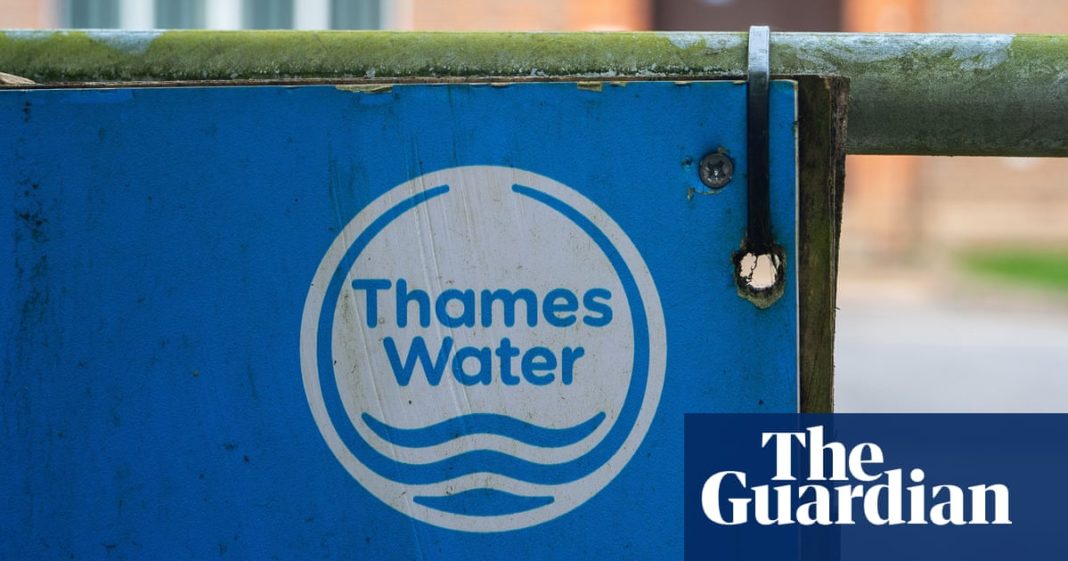Thames, Yorkshire and Northumbrian Water will be fined a record £168m between them for a âcatalogue of failureâ over illegal sewage discharges into rivers and the sea after the industry regulatorâs biggest ever investigation.
The water regulator for England and Wales, Ofwat, has proposed penalties of £104m for Thames, £47m for Yorkshire and £17m for Northumbrian for failing to manage their wastewater treatment works and networks, including their operation of storm overflows. It said it was the first of more crackdowns to come.
Ofwat found all three companies had âroutinelyâ released sewage into rivers and seas, failing to ensure that discharges of sewage from storm overflows occur only in exceptional circumstances, which had âresulted in harm to the environment and their customersâ.
The investigation was prompted by a public outcry over water companies breaking legal rules on when they could release raw sewage and came after evidence was presented to MPs that suggested illegal dumping was 10 times higher than the regulators realised.
Steve Reed, the environment secretary, welcomed Ofwatâs action. âThe unacceptable destruction of our waterways should never have been allowed â and it is right that those responsible for illegally polluting our rivers, lakes and seas face the consequences,â he said.
He added that the government would fundamentally reform the water sector, announcing first steps to clean up the industry in its special measures bill, to cut sewage pollution, protect customers and attract investment to upgrade its crumbling infrastructure, as well as promising further legislation.
The regulator said at Thames, Britainâs biggest water company, 67% of wastewater treatment works had capacity and operational problems, and 16% of its storm overflows were in breach of their permits. At Yorkshire, 16% of sewage works had problems and 45% of its storm overflows were found to be in breach. At Northumbrian, 3% of wastewater works were found to have issues and 9% of its storm overflows were in breach.
Ofwat also found a strong correlation between high spill levels and operational issues at wastewater treatment sites; a failure to upgrade assets; and said companies had been âslow to understand the scope of their obligations relating to limiting pollution from storm overflows and failed to ensure that they had in place the necessary information, processes and oversightâ.
Its chief executive, David Black, said: âOur investigation has shown how [the three companies] routinely released sewage into our rivers and seas, rather than ensuring that this only happens in exceptional circumstances as the law intends.
âThe level of penalties we intend to impose signals both the severity of the failings and our determination to take action ⦠These companies need to move at pace to put things right and meet their obligations to protect customers and the environment. They also need to transform how they look after the environment and to focus on doing better in the future.â
Last month Ofwat proposed that all water companies could raise bills by an average of £94 over five years to an average of £535 a year, described as âa bitter pillâ by the chancellor, Rachel Reeves, that reflected â14 years of failure from the Conservativesâ.
Under the proposals, companies are required to reduce spills from sewage overflows by 44% by 2030 compared with 2021 levels. Campaigners have criticised the plans, arguing that they do not go far enough to tackle sewage spills and make customers pay twice.
after newsletter promotion
Thamesâs latest financial report showed the number of incidents of pollution from treatment works and the pipe network increased to 350 last year, from 331 in 2022. The rise was attributed to delays in investment to create more capacity at many of the companyâs 400 ageing sewage treatment works.
Charles Watson, the chair and founder of the campaign group River Action, said: âLast year sewage was discharged across England, Northern Ireland, Scotland and Wales more than 596,666 times. Thatâs over 1,600 times a day â and with many of these discharges being illegal, this situation is completely unacceptable.
âThankfully the water regulator, for so long toothless, is finally waking up to the scale of the publicâs outrage and we are starting to see some meaningful penalties being imposed upon the worst offenders.
âHowever, remember that the water industry was able to find more than £11bn to hand out to their shareholders in dividends last year, which gives context to these fines. Until the ability of these polluting companies to hand out so much cash is severely curtailed, pollution will continue to be a highly profitable activity with inadequate incentives for the water companies to fix their creaking infrastructure and stop filling our rivers with raw sewage.â


